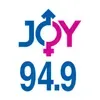Lgbtiqa* Live Radio Stations
Radio Stations
Choose a Genre
LGBTIQA Radio Stations: A Platform for Diversity and Inclusion*
The acronym LGBTIQA* stands for Lesbian, Gay, Bisexual, Transgender, Intersex, Queer, Asexual, and other identities that fall under the larger LGBTQ+ umbrella. While no specific radio stations exclusively cater to the LGBTIQA* community, there are numerous LGBTQ+ focused radio stations that provide music and programming that resonates deeply with people across these diverse identities. These stations play an important role in amplifying voices, raising awareness about critical issues, and fostering a sense of belonging within the broader LGBTQ+ community.
Although "LGBTIQA*" is not a music genre, many radio stations that focus on LGBTQ+ issues play music that is popular among the community. These stations typically feature a diverse array of genres, from pop and dance to rock and alternative music, often spotlighting LGBTQ+ artists. By showcasing music from LGBTQ+ creators, these stations not only promote inclusive artistic expression but also foster visibility and representation for marginalized groups within the community.
For example, Pride Radio is a well-known station that broadcasts across the United States. The station plays a blend of pop and dance music, with regular updates on news and talk shows dedicated to addressing LGBTQ+ issues. Pride Radio’s commitment to diversity and inclusion makes it a valuable resource for anyone seeking a platform for both entertainment and information related to LGBTQ+ rights, culture, and activism.
Similarly, QNation, an online radio station, serves as another key space for LGBTQ+ listeners. QNation features a broad spectrum of music, ranging from pop and rock to electronic and more. It also provides interviews with LGBTQ+ artists, activists, and community leaders, offering listeners a chance to engage with important conversations surrounding social justice, equality, and human rights. QNation's commitment to creating a platform for diverse voices within the LGBTQ+ community ensures that its programming remains inclusive and relevant.
In addition to these stations, community radio stations play an essential role in supporting the LGBTQ+ community. For example, Joy FM based in Melbourne, Australia, is dedicated to promoting LGBTQ+ issues and playing a mix of music genres including pop, rock, and dance. Joy FM also features talk shows and news programming that address the unique challenges and triumphs of the LGBTQ+ community, helping to create greater awareness and understanding.
Despite the absence of a specific station solely for LGBTIQA* listeners, LGBTQ+ radio stations play a crucial role in uniting people under a shared banner of equality, inclusivity, and understanding. Whether by showcasing the talents of LGBTQ+ musicians, providing in-depth discussions on the struggles and victories of the community, or offering a sense of connection to listeners around the world, these stations contribute to a more inclusive media landscape.
In conclusion, while there are no radio stations dedicated solely to the LGBTIQA* community, the broader network of LGBTQ+ radio stations offers an inclusive and supportive space for all listeners. By offering a diverse range of musical genres, talk shows, and news programming, these stations help amplify LGBTQ+ voices and promote a message of unity, equality, and social justice.
The acronym LGBTIQA* stands for Lesbian, Gay, Bisexual, Transgender, Intersex, Queer, Asexual, and other identities that fall under the larger LGBTQ+ umbrella. While no specific radio stations exclusively cater to the LGBTIQA* community, there are numerous LGBTQ+ focused radio stations that provide music and programming that resonates deeply with people across these diverse identities. These stations play an important role in amplifying voices, raising awareness about critical issues, and fostering a sense of belonging within the broader LGBTQ+ community.
Although "LGBTIQA*" is not a music genre, many radio stations that focus on LGBTQ+ issues play music that is popular among the community. These stations typically feature a diverse array of genres, from pop and dance to rock and alternative music, often spotlighting LGBTQ+ artists. By showcasing music from LGBTQ+ creators, these stations not only promote inclusive artistic expression but also foster visibility and representation for marginalized groups within the community.
For example, Pride Radio is a well-known station that broadcasts across the United States. The station plays a blend of pop and dance music, with regular updates on news and talk shows dedicated to addressing LGBTQ+ issues. Pride Radio’s commitment to diversity and inclusion makes it a valuable resource for anyone seeking a platform for both entertainment and information related to LGBTQ+ rights, culture, and activism.
Similarly, QNation, an online radio station, serves as another key space for LGBTQ+ listeners. QNation features a broad spectrum of music, ranging from pop and rock to electronic and more. It also provides interviews with LGBTQ+ artists, activists, and community leaders, offering listeners a chance to engage with important conversations surrounding social justice, equality, and human rights. QNation's commitment to creating a platform for diverse voices within the LGBTQ+ community ensures that its programming remains inclusive and relevant.
In addition to these stations, community radio stations play an essential role in supporting the LGBTQ+ community. For example, Joy FM based in Melbourne, Australia, is dedicated to promoting LGBTQ+ issues and playing a mix of music genres including pop, rock, and dance. Joy FM also features talk shows and news programming that address the unique challenges and triumphs of the LGBTQ+ community, helping to create greater awareness and understanding.
Despite the absence of a specific station solely for LGBTIQA* listeners, LGBTQ+ radio stations play a crucial role in uniting people under a shared banner of equality, inclusivity, and understanding. Whether by showcasing the talents of LGBTQ+ musicians, providing in-depth discussions on the struggles and victories of the community, or offering a sense of connection to listeners around the world, these stations contribute to a more inclusive media landscape.
In conclusion, while there are no radio stations dedicated solely to the LGBTIQA* community, the broader network of LGBTQ+ radio stations offers an inclusive and supportive space for all listeners. By offering a diverse range of musical genres, talk shows, and news programming, these stations help amplify LGBTQ+ voices and promote a message of unity, equality, and social justice.



